TWO USM TEAMS WON REGIONAL GLOBAL INNOVATION CHALLENGE ON CLIMATE CHANGE
PENANG, 7 December 2020 – Two out of three student teams from Universiti Sains Malaysia (USM) won the Third and Fifth places respectively in the finals of the South East Asian-Global Innovation Challenge 2020 (SEA-GIC 2020), held virtually recently on 3 December 2020.
The programme was organised by the American Chemical Society (ACS) Malaysia Chapter, in collaboration with ACS UTP and UTP (Universiti Teknologi Petronas).
THIRD PLACE goes to a team of final-year students from the USM School of Chemical Sciences, comprising of Shirley Ooi Yee Shyen, Koo Pooi Ling and Chai Jia En, with their project entitled "Conversion of Dissolved CO2 into Electrical Energy Using an Electrochemical Method".
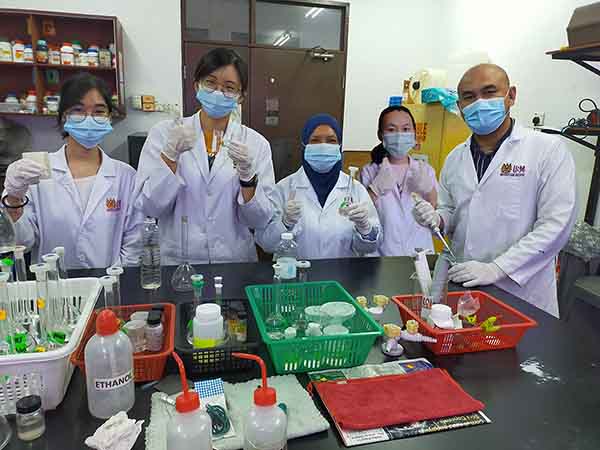
They took home a RM500 cash prize along with a trophy and certificates.
When contacted via WhatsApp to explain briefly about their project, Shirley said that they experimented on converting dissolved CO2 in an aqueous system into electrical power by using an electrochemical method via redox reactions.
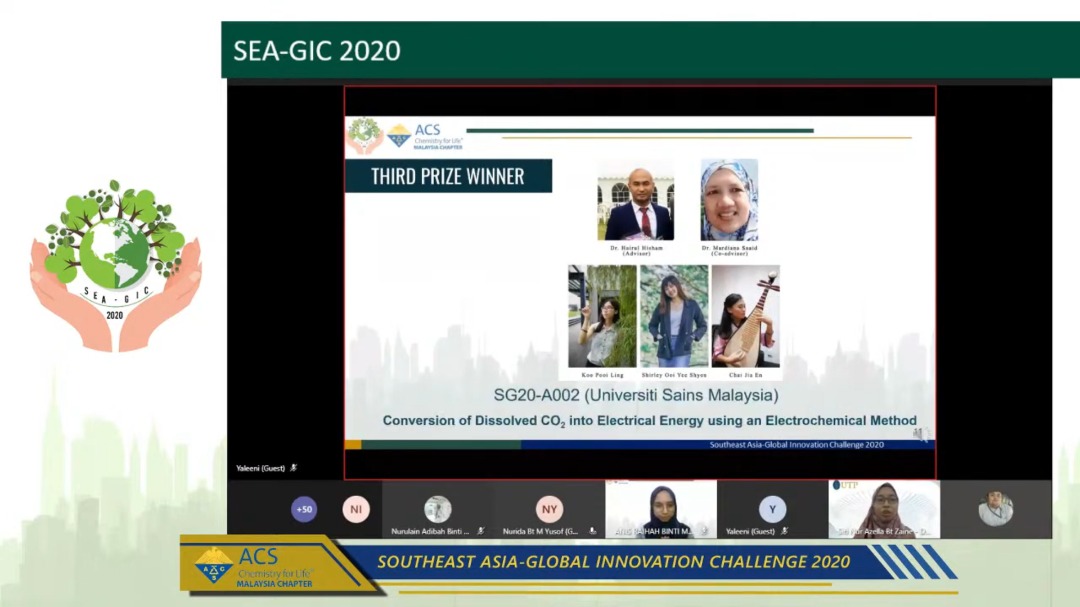
“We also found that this method works best when using seawater, which has the highest concentration of dissolved CO2 and it offers a great potential to generate electrical energy,” she said.
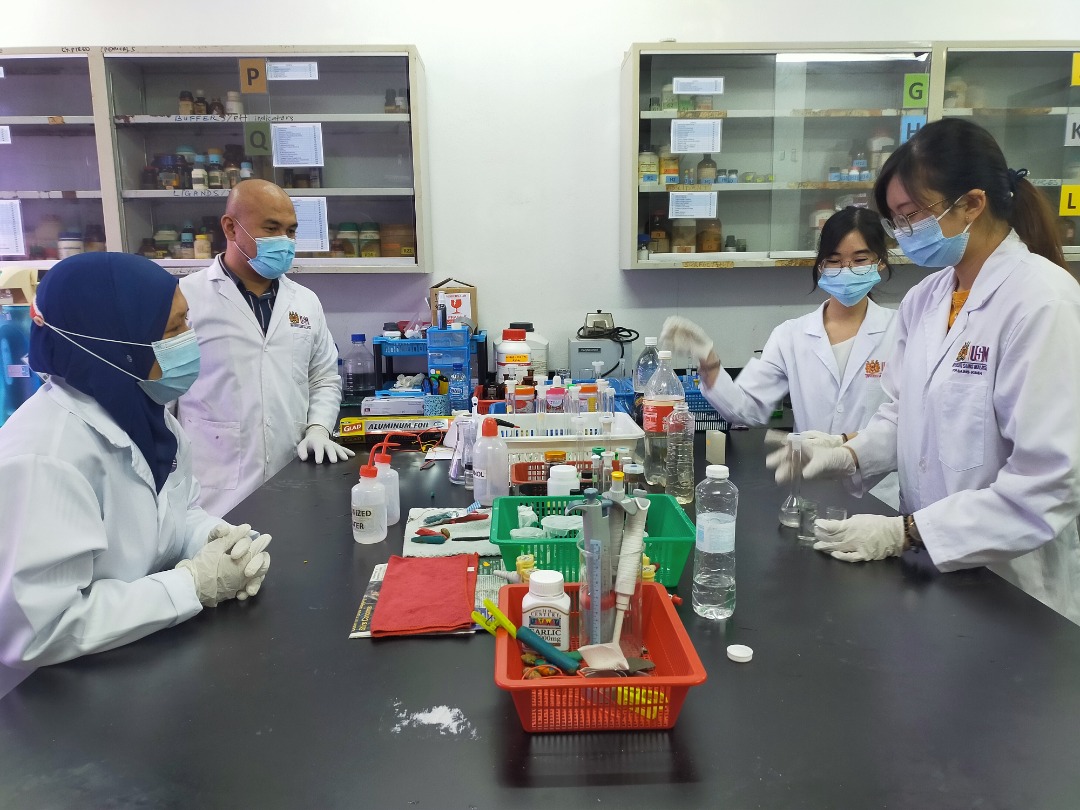
Shirley added, “My course mates and I wish to thank both our supervisors Dr. Hairul Hisham Hamzah and Dr. Mardiana Saaid for their invaluable supervision, support and tutelage during the course of this research project.”
FIFTH PLACE (Consolation Prize) went to another team from USM, comprising of third-year students from the School of Chemical Engineering, represented by James Law Ka Chun, Teh Yoong Sin and Teoh Wei Xin, with their project entitled "Next Generation Carbon Capture and Storage: Chemical Looping with Oxygen Uncoupling (CLOU)".
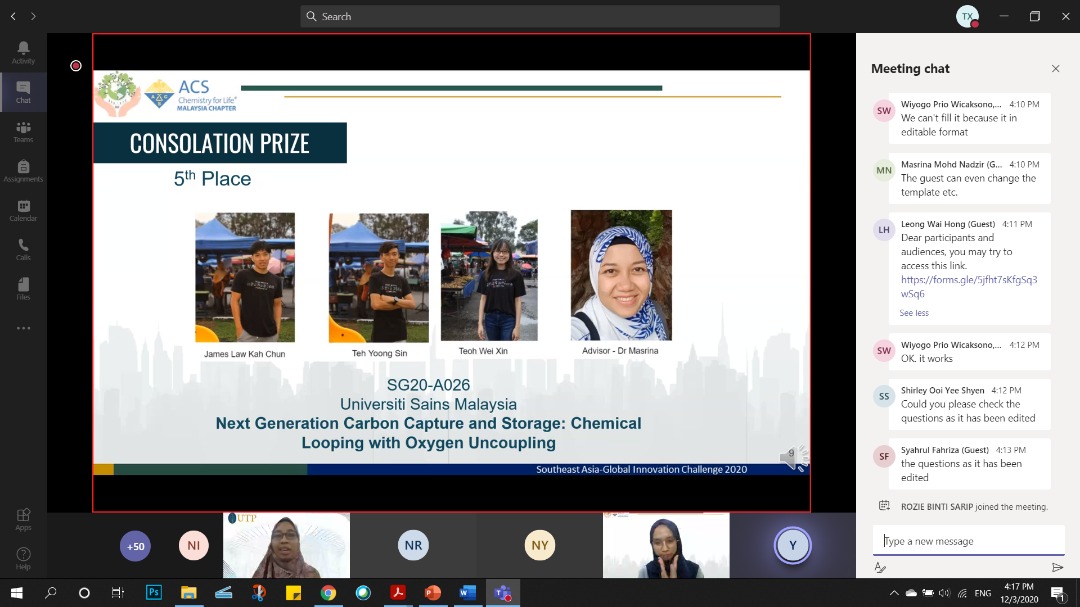
Speaking on behalf of the team, Teoh explained that the basic idea of their project is to replace the current method of coal combustion for power generation with a new approach called chemical looping with oxygen uncoupling (CLOU) which does not require a separation unit to capture carbon dioxide.
“The separation unit used usually requires high energy usage that will reduce the efficiency of a coal-based power plant. With this new approach, the power plant can achieve a higher net electrical efficiency while reducing the amount of carbon dioxide released into the atmosphere,” she added.
Teoh and her team mates also had their supervisor, Dr. Masrina Mohd Nadzir to thank for, as she constantly encouraged them and spurred them to improve the quality of their research outcomes.
A total of 63 teams, representing public and private universities from Malaysia and Indonesia, took part in the pitching competition event aiming to discover chemistry-related projects that could address the ever challenging issue of the current time - climate change - covering topics related to renewable energy, transportation, CO2 utilisation, green chemistry and green building.
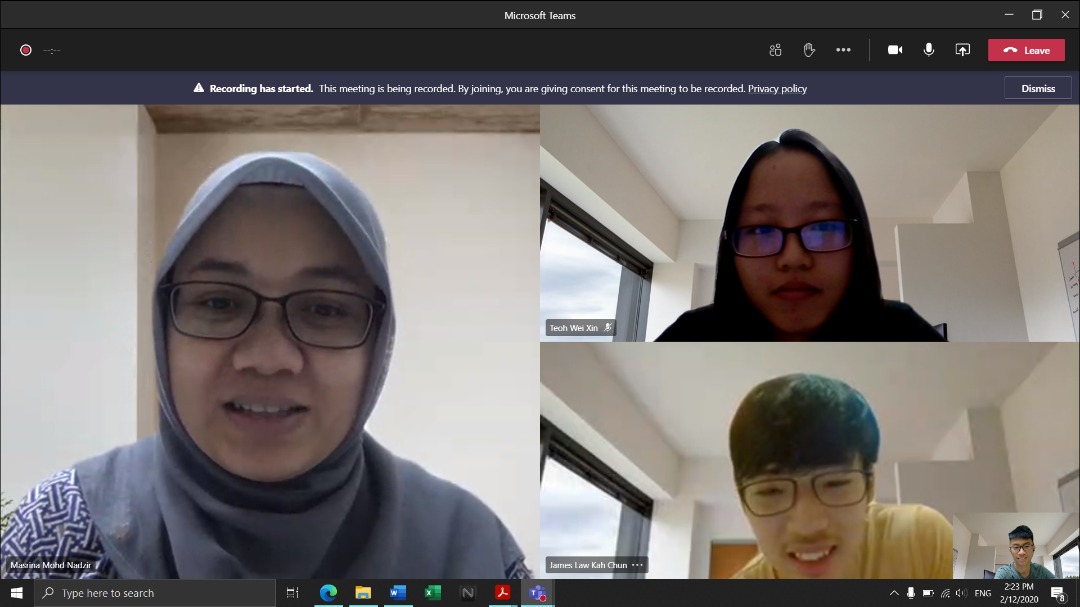
Text: Mazlan Hanafi Basharudin & Tan Ewe Hoe/Photos: Contributed by: Shirley Ooi Yee Shyen & Teoh Wei Xin
- Created on .
- Hits: 1987
